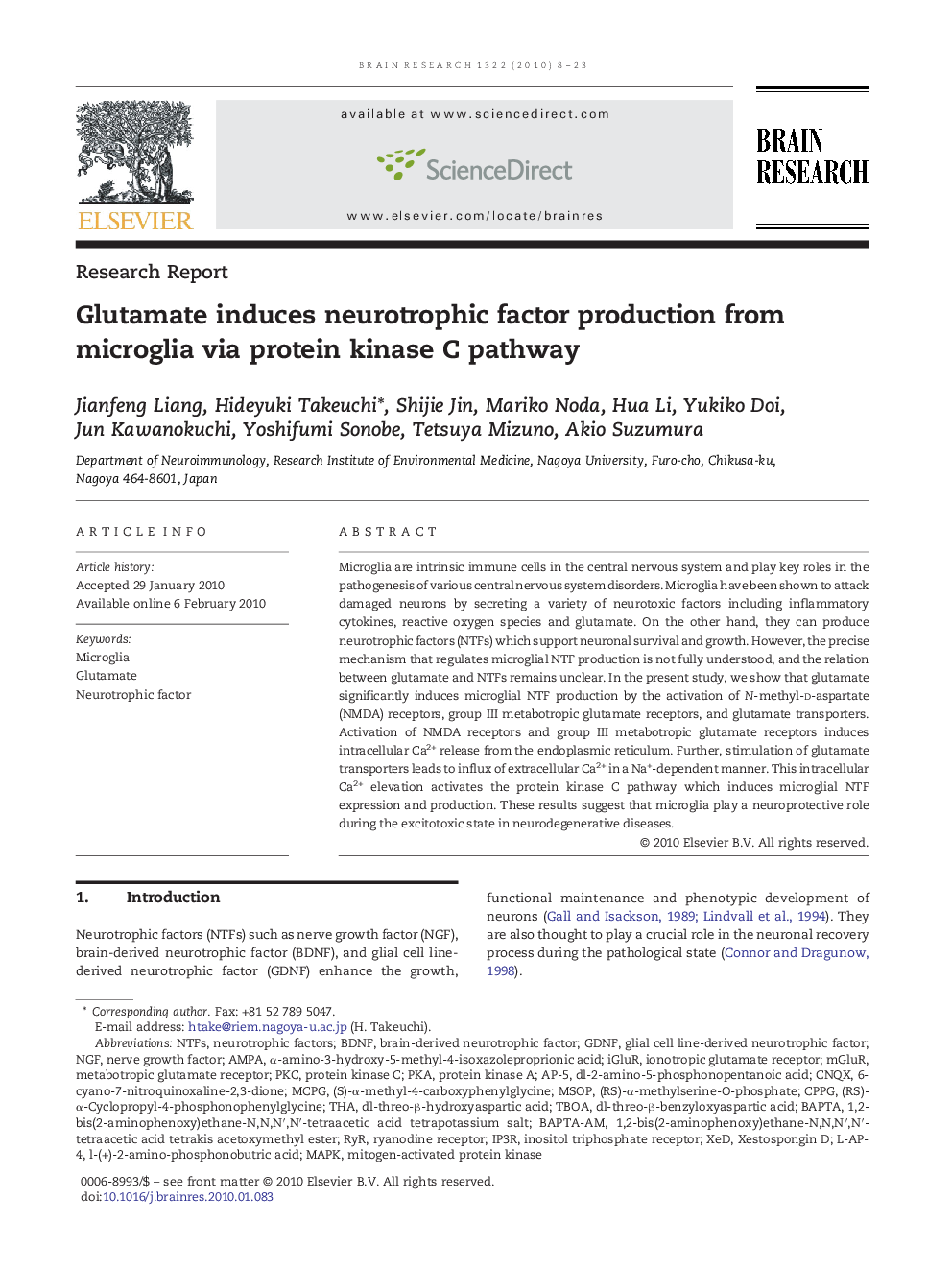| Article ID | Journal | Published Year | Pages | File Type |
|---|---|---|---|---|
| 4327249 | Brain Research | 2010 | 16 Pages |
Abstract
Microglia are intrinsic immune cells in the central nervous system and play key roles in the pathogenesis of various central nervous system disorders. Microglia have been shown to attack damaged neurons by secreting a variety of neurotoxic factors including inflammatory cytokines, reactive oxygen species and glutamate. On the other hand, they can produce neurotrophic factors (NTFs) which support neuronal survival and growth. However, the precise mechanism that regulates microglial NTF production is not fully understood, and the relation between glutamate and NTFs remains unclear. In the present study, we show that glutamate significantly induces microglial NTF production by the activation of N-methyl-d-aspartate (NMDA) receptors, group III metabotropic glutamate receptors, and glutamate transporters. Activation of NMDA receptors and group III metabotropic glutamate receptors induces intracellular Ca2+ release from the endoplasmic reticulum. Further, stimulation of glutamate transporters leads to influx of extracellular Ca2+ in a Na+-dependent manner. This intracellular Ca2+ elevation activates the protein kinase C pathway which induces microglial NTF expression and production. These results suggest that microglia play a neuroprotective role during the excitotoxic state in neurodegenerative diseases.
Keywords
MCPGIP3RTBOAmGluRAP-5PKCRyR1,2-bis(2-aminophenoxy)ethane-N,N,N′,N′-tetraacetic acid tetrakis acetoxymethyl esterNTFsTHAGDNFdl-threo-β-benzyloxyaspartic acidNGF(S)-α-Methyl-4-carboxyphenylglycineα-amino-3-hydroxy-5-methyl-4-isoxazoleproprionic acidMSOPpKaAMPACPPG(RS)-α-cyclopropyl-4-phosphonophenylglycine(RS)-α-Methylserine-O-phosphate6-Cyano-7-nitroquinoxaline-2,3-dioneBDNFiGluRMAPKDL-2-Amino-5-phosphonopentanoic acidBAPTABAPTA-AMCNQXNeurotrophic factorNeurotrophic factorsnerve growth factorGlial cell line-derived neurotrophic factorBrain-derived neurotrophic factorMicrogliaprotein kinase AProtein kinase Cmitogen-activated protein kinaseglutamateinositol triphosphate receptorRyanodine receptorMetabotropic glutamate receptorionotropic glutamate receptor
Related Topics
Life Sciences
Neuroscience
Neuroscience (General)
Authors
Jianfeng Liang, Hideyuki Takeuchi, Shijie Jin, Mariko Noda, Hua Li, Yukiko Doi, Jun Kawanokuchi, Yoshifumi Sonobe, Tetsuya Mizuno, Akio Suzumura,
